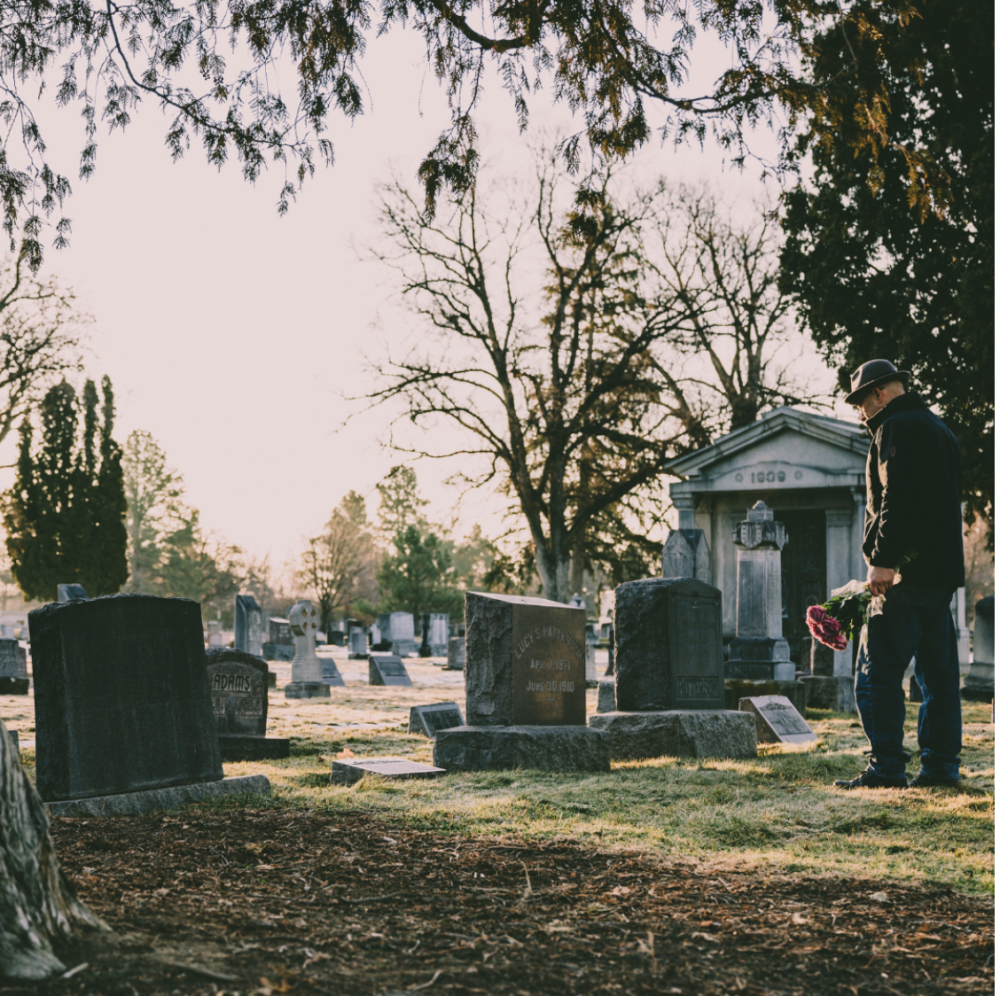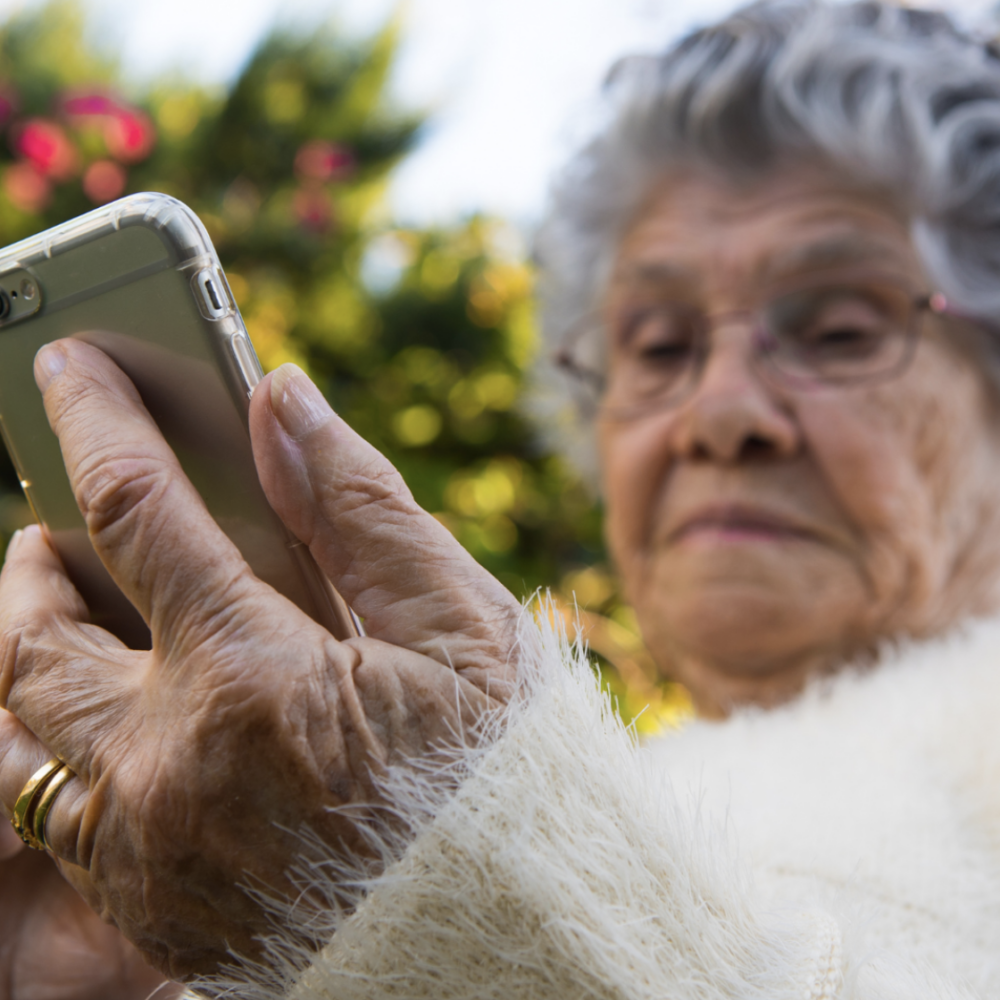This article was first published in the Good Grief newsletter on August 18.
Good Grief! wants to take you in a slightly different direction in this newsletter. Recently, we’ve focused on palliative care. But there are other aspects of the grief and death experience. And one of these is how we care for people who are grieving.
The ancient guides remain. Death, grieving and the rituals around them are experiences that have been around since the beginning of time – archaeological digs provide good evidence for this.
One of our greatest challenges is to navigate ancient experiences in an age of explosive technological development.
In modernity, one of the greatest challenges now is how we navigate these ancient experiences in an age of explosive technological developments – and while we face other impacts, such as the Covid pandemic whose implications continue and other redefining forces – such as climate change.
Technology has changed the way we work and it’s changing the way we interact socially – from the way we order a cup of coffee, to the way we respond to invitations to connect with our community, to the way we sell our products.
Anyone working in the modern era gets the nature of this; anyone who’s been involved in the marketing of a product asks (and we’re all selling something, even health care professionals): “Who is my market? My neighbour? My city or the whole world?”

The bigger the digital universe the smaller we feel.
Paradoxically, the bigger the sense of an ever-expanding digital universe, the less significant we often feel our production is – and we ourselves can therefore feel more diminished, our lives more meaningless.
What impact does this have in those situations where we’re called upon to take part in ritual to honour someone, especially someone who has died?
Despite the internet, some things stay the same. We still inhabit human bodies. Those bodies still die. We must still attend to the dying and the grieving.
Much needed scrutiny of our experience of death continues – as the level of engagement with Good Grief! shows.
This continues at the political level too, as shown by the January 2022 Report of the Lancet Commission on the Value of Death: bringing death back into life, which expresses concern over our increasing tendency to over-treat in medical environments, while devaluing comfort.
Good Grief! is not the first to observe this devaluing is a vexing yet unintended by-product of our ever-expanding technology.
A really important point, made by the Lancet Commission is: “Health-care professionals cannot substitute for the sense of coherence, the rituals and traditions, nor long-term mutual support that families and communities bring to people who are dying or grieving.”
This, unsurprisingly, reinforces an essential truth, that it is the community who will take back the dead. It is their communities who will bury them, then mourn them.
We still need to attend funerals and services, setting aside human knowledge and replacing it with the wisdom of the earth.
For all the advances in medical technology we still have a need to attend funerals and services, setting aside human knowledge and replacing it with the wisdom of the earth.
Recent studies have investigated the impact of Covid on all of this.
One of these reported by the Lancet Commission, How do Funeral Practices Impact Bereaved Relatives’ Mental Health, Grief and Bereavement? A Mixed Methods Review with Implications for COVID-19. reviewed several other studies.
It concluded that the need of people to shape their funeral ritual in a way that is meaningful to them is still very important to people, regardless of the impacts on their mental health.
The same study also showed that during Covid, restrictions on physical expressions of comfort, such as hugs, handshakes or sitting next to each other during the funeral, left people with a sense of dissatisfaction about the farewells they took part in.

Will the funeral change even more?
So, if the need for the funeral hasn’t changed, has the funeral itself changed?
The answer is probably yes. And so have many other aspects of our death related social discourse.
In one social development, two ministers of religion with large Christian congregations, one Anglican and one Catholic, recently told Good Grief!, that fewer people in their congregations want a full, traditional religious ceremony but many still want a spiritually based service, such as a memorial event, as a celebration of a life, conducted from their local church.
Both talked about the theological dilemma this presents to them. But that aside, it shows people still feel connected to ritual, even though the meaning of that ritual is changing.
Does the internet change how we mourn? the authors asked.
In 2012, before the rest of us thought it was a thing, Tony Walter of Bath University was the lead author of an extensive study looking at the way the internet changes the way we die and mourn – Does the Internet Change How We Die and Mourn? Overview and Analysis.
He said then: “We suggest that if the social interactions of dying or grieving people change, then the experience of dying or grieving may well change.”
And he said: “the sequestration (or hiding) of death and dying; disenfranchisement of grief, private grief, social death, illness, and grief narratives; continuing bonds with the dead; and the presence of the dead in society,” are all affected by the internet.
The evidence for this is pretty clear. Good Grief! would say the internet has helped open up the subject of death and dying and this has gathered momentum since 2012.
Is this a good thing? We’d say generally yes, so far.
Walter gives a fascinating explanation of bonding and bridging social capital, within the context of the internet. He explains the social theories that show strong ties bind people to a few like-minded people, while bridges open them to others who are different.
The internet sure has been a bridge, opening us up to an extraordinary range of new forces – even putting aside recent concerns about the big ‘echo chambers’ some of us have fallen into in the social media space, which reinforce our points of view in a damaging way.

The internet can bring dying and grieving out into the world.
Back in 2012 Walter came to some positive conclusions.
“In particular, social network sites can bring dying and grieving out of both the private and public realms and into the everyday life of social networks beyond the immediate family, and provide an audience for once private communications with the dead,” he explained in his abstract then.
Five years later, the social research was still favourable.
In 2017, Joseph Rauch wrote in How Social Media Has Changed the Way We Grieve. on TalkSpace that generally speaking, the expansion of social media into the grief space has been good for patterns in grieving.
He gives the example of Gale, an atheist, whose mother dies and who only sees her family expressing their grief in religious terms. She doesn’t relate to this but when she goes online, she’s able to memorialise her mother in a way that more reflects her values because she can find her community there.
Rauch describes how much online grieving has expanded.
Tony Walter and Tara Bailey asked “Who is the funeral for?”
“It has become standard to grieve on all major social media platforms, including Instagram and Pinterest. For example, people have made Pinterest boards celebrating the lives of their dead loved ones,” Rauch says.
“Today most people perceive the social media profiles and pages of the deceased as memorials, regardless of whether they are officially part of a digital legacy. The vast majority of the population believes being able to view a loved one’s profile after their death is important, according to a 2016 survey by the Digital Legacy Association,” he writes.
“Because of the wide acceptance and encouragement of grieving via social media, the practice has evolved and expanded beyond Facebook. Twitter has also become a popular place to honor the dead,” he says.
In more recent work, published in 2018 although drawing on older surveys, How Funerals Accomplish Family: Findings From a Mass-Observation Study Tony Walter and Tara Bailey studied something else which is increasingly likely to change as social media redefines who we are and our relationships.
They asked “who is the funeral for?” Is it for the family or others who might not have a familial relationship but who might be grieving just as much if not more?
Good Grief! suspects that now, more than ever, this question, driven by internet connectivity will be asked ever more, as more memorialisation, other than the funeral itself, comes into play, including its now standard video-recording which can be beamed anywhere in the world, for ever more.
Whatever we believe about the role of modern technology in grief and mourning, and how it is shaping our funerary practices, the internet is here to stay, it’s a genie we’re not going to put back in the bottle.
This is despite the analyses of the impact of technology on us and our brains, such as Johann Hari’s Stolen Focus, which will continue to raise important questions.

Resources.
I recently discussed internet etiquette in a piece for Australia’s Body and Soul, “8 ways to follow proper death etiquette in the age of instagram.”
Report of the Lancet Commission on the Value of Death: bringing death back into life
How do Funeral Practices Impact Bereaved Relatives’ Mental Health, Grief and Bereavement? A Mixed Methods Review with Implications for COVID-19
Does the Internet Change How We Die and Mourn? Overview and Analysis.
How Social Media Has Changed the Way We Grieve.
The Digital Legacy and Digital Assets Infographic 2016
How Funerals Accomplish Family: Findings From a Mass-Observation Study.
Stolen Focus by Johann Hari.
